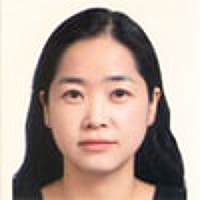Psychological studies of stress experienced by seamen during a long-distance sea voyage#
Published on: 25th August, 2020
OCLC Number/Unique Identifier: 8691261217
The issues investigated in the current study pertain to selected psychological aspects of human functioning in long-term stress conditions. Results of the analyses performed in this study have submitted evidence to confirm the hypothesis in which it is stated that staying on the sea for a long time is a difficult situation which contributes - to a greater or smaller extent - to starting the stress process in sailors. The role of interpersonal competencies that has been found most distinct; high level of this variable contributed to reducing both anxiety and the feeling of loneliness. It has been evidenced in the research that the skill of good functioning in varied social groups, which results from high level of development of several traits including: openness, spontaneity, responsibility, and sensitivity, becomes particularly important in long-term difficult situations in which there is little possibility of eliminating the real menace.
Another conclusion to be inferred from the research is the one confirming the theoretical suggestion in which the importance of ‘ego strength’ in modifying the course of stress process is emphasised. This personality dimension has turned out to constitute the factor capable of protecting an individual against increase in both anxiety states and the feeling of loneliness during sea isolation.
Another issue considered in the current study pertains to defining the role of ‘family variable’ in mediating the course of stress process under conditions of long-term task isolation. The analyses have confirmed the hypothesis in which it was assumed that sailors functioning in family systems characterised by high level of integration and quality, experience lower emotional costs during a voyage. Generally, it may be claimed that - according to the research results of the study - ‘family variables’ may constitute a significant predictor of both the ‘quality’ of a man’s functioning and personal costs he experiences in long-term stress conditions.
Predicting physical symptoms through expressions of loneliness and anxiety in individuals utilizing social media during SARS-CoV-2
Published on: 25th April, 2022
The effect of the novel coronavirus (SARS-CoV-2) pandemic has produced significant health concerns negatively impacting individuals. As the ongoing and constantly changing nature of SARS-CoV-2 continues, the unique characteristics of this pandemic trend toward anxiety and loneliness as significant behavioral health outcomes. Furthermore, the SARS-CoV-2 pandemic has significantly impacted the utilization of social media platforms such as Twitter. Utilizing over 1.6 million tweets from approximately 988,760 Twitter users geolocated in Washington state from the University of Pennsylvania’s publicly available Twitter database (from March 2020 to March 2021), this study evaluated the impact of SARS-CoV-2 by using expressions of loneliness and anxiety to predict mental and physical symptoms. Bivariate correlations revealed expressions of loneliness were correlated to trouble breathing while expressions of anxiety were correlated to skin lesions, body aches, flu-like, seasonal cold, trouble breathing, nausea or diarrhea, fever, chills, and cough. Multiple multivariate linear regressions were completed, and a significant regression equation was found in predicting trouble breathing symptoms on expressions of loneliness and anxiety, however, the proportion of variance was 8% of the observed variation in the model. Further implications revealed the importance of understanding mental and physical well-being during a public health crisis as well as the use of social media platforms as primary and supplementary stimuli.
Harnessing Artificial Intelligence for Early and Evolution of Alzheimer’s Disease Detections and Enhancing Senior Mental Health through Innovative Art-Singing Therapies: A Multidisciplinary Approach
Published on: 28th June, 2023
The well-documented therapeutic potential of group singing for patients living with Alzheimer’s disease (PLAD) has been hindered by COVID-19 restrictions, exacerbating loneliness and cognitive decline among seniors in residential and long-term care centers (CHSLDs). Addressing this challenge, the multidisciplinary study aims to develop a patient-oriented virtual reality (XR) interaction system facilitating group singing for mental health support during confinement and enhancing the understanding of the links between Alzheimer’s disease, social interaction, and singing. The researchers also propose to establish an early AD detection system using voice, facial, and non-invasive biometric measurements and validate the efficacy of selected intervention practices. The methodology involves co-designing an intelligent environment with caregivers to support PLAD mental health through online group singing, addressing existing constraints in CHSLDs. The researchers will engage volunteers in remote singing interactions and validate the impact of voice stimulation for PLADs using a control group. The primary expected outcome is the development of an “Intelligent Learning Health Environment,” fostering interactions while adapting to individual PLAD situations and incrementally accumulating knowledge on AD signs. This environment will facilitate the transfer of knowledge and technologies to promote non-verbal interactions via singing, enabling intervention at the first symptoms. Additionally, the research will contribute to transforming CHSLDs’ living environments, informed by neuroscience insights, and potentially extend the “collaborative self-care” approach to support seniors in aging safely and healthily at home.
The Ramifications of Loneliness: A Commentary
Published on: 8th September, 2023
Loneliness was a major concern of people during the recent COVID-19 pandemic. Now, that the pandemic is mainly gone, it is still a global issue. This commentary reviews the impact on that loneliness has on our cognitive, behavioral and affective functioning. These effects are described, along with the stigma that often accompanies loneliness and which makes it hard for people to acknowledge and admit that they are lonely, and seek help from healthcare professionals. This commentary, aside from describing the various negative implications of loneliness, highlights the need for society to address the issue. While it cannot be eliminated, the population can be taught how to recognize it, and how to offer assistance to those who struggle with it.
Hospitalization, Surgery and loneliness
Published on: 3rd January, 2024
Being hospitalized or undergoing a surgical procedure may be quite an isolating and lonely experience. This review explored loneliness in the hospital and surgical setting, and highlights the emotional and psychological challenges experienced by patients during their healthcare journey. While hospitals traditionally provide medical and surgical care for a wide array of conditions, the irony lies in their potential to disrupt one’s daily routines, contribute to loss of control, prolong hospital stays, and limit connections with family and loved ones leading to negative psychological well-being and intensifying feelings of loneliness. The implications of loneliness in the hospital and surgical contexts are discussed along with recommendations for improving the healthcare system’s response to the negative health consequences associated with loneliness. Coping strategies are discussed, including social support mechanisms, and approaches to healthy behaviors, i.e. mindfulness, which contribute to mitigating loneliness, in the context of hospitalizations and surgery.
Approaching Mental Health Through a Preventive Data Analysis Platform
Published on: 3rd April, 2024
The rising prevalence of chronic diseases and the aging population globally are diminishing the overall quality of life, especially for those with demanding daily routines. As medical advancements extend lifespans, the proportion of individuals over 60 is set to double by 2050, necessitating societal shifts toward health-responsible citizenship. Despite longer lifespans, evidence suggests that older age often accompanies mental health challenges such as anxiety, depression, and substance misuse. Social isolation and loneliness further compound these issues, affecting both physical and mental well-being. Digital wellness empowers individuals to take charge of their health, promoting proactive care and literacy to foster health-conscious citizenship. This paper explores the intersection of mental health, aging populations, preventive wellness initiatives, and health literacy, emphasizing their significance within the Health 5.0 framework, especially for older adults. Traditionally, health regulators offer static workflows for adopting standard procedures in health and well-being, reflecting a reactive approach. However, the evolving landscape of wearable and mobile devices connecting to healthcare IT systems through secure online networks necessitates a shift. Technology now facilitates remote patient monitoring and telemedicine service subscriptions and empowers individuals to manage their health proactively.The BE4YOU project, conducted in Portugal, serves as a case study, facilitating individual maintenance of health and well-being through intelligent and dynamic workflows, which are defined based on analytical models considering each person’s risk profile. By facilitating data sharing, promoting healthy lifestyles, and enabling early detection of mental health issues, the project leverages technology to support personalized monitoring and enhance overall health outcomes. Through technology-driven empowerment, individuals and healthcare professionals are better equipped to assess risks and ensure ongoing wellness monitoring, underscoring the role of technology in fostering personal health and supporting healthcare effectiveness.
Loneliness and Culture: A Commentary
Published on: 1st May, 2024
Loneliness is thean experience that is intertwined inwith being human, but since it is so painful and troubling, all of us try to avoid it. It has short- and long-term negative consequences, including its influence on our life satisfaction, health, and mortality. Various causal factors were explored regarding loneliness, which is essentially a subjective experience. This commentary aims to highlight the contribution of culture, be it collectivistic or individualistic, to the development of loneliness. Since loneliness is correlated with the expectation of being with others and part of a community, research found that people in collectivistic cultures are lonelier than those in individualistic ones. Ethnicity also contributes to the development, and was thus reviewed. While it beingis an essential part of being human, loneliness can, indeed, be attenuated and its pain lessened, and culture may predict ways of doing so.
Browse by Subjects
Biology Group Journals
Chemistry Group Journals
Clinical Group Journals
- Archives of Food and Nutritional Science
- Annals of Dermatological Research
- International Journal of Clinical Microbiology and Biochemical Technology
- Journal of Advanced Pediatrics and Child Health
- Journal of Pulmonology and Respiratory Research
- Insights in Clinical and Cellular Immunology
- International Journal of Clinical Anesthesia and Research
- Journal of Clinical Intensive Care and Medicine
- Journal of Clinical, Medical and Experimental Images
- Journal of Neuroscience and Neurological Disorders
- Insights in Veterinary Science
- Archives of Asthma, Allergy and Immunology
- Journal of Child, Adult Vaccines and Immunology
- Archives of Cancer Science and Therapy
- Clinical Journal of Nursing Care and Practice
- Annals of Clinical Gastroenterology and Hepatology
- Journal of Hematology and Clinical Research
- Archives of Pathology and Clinical Research
- Annals of Clinical Hypertension
- Journal of Oral Health and Craniofacial Science
- International Journal of Clinical and Experimental Ophthalmology
- Journal of Radiology and Oncology
- Archives of Clinical and Experimental Orthopaedics
- International Journal of Bone Marrow Research
- International Journal of Clinical Virology
- New Insights in Obesity: Genetics and Beyond
- Advanced Treatments in ENT Disorders
- Journal of Clinical Advances in Dentistry
- Insights on the Depression and Anxiety
- Heighpubs Otolaryngology and Rhinology
- Clinical Journal of Obstetrics and Gynecology
- Archives of Surgery and Clinical Research




